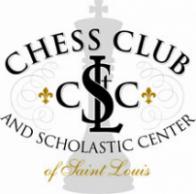This 2006 report evaluated the performance of 233 students participating in an after-school chess instruction program, Chess for Success (CFS), on the mathematics and reading portions of the Oregon state test, the Coopersmith Inventory, and a student behavior scale. Treatment group student performance was compared to the performance of 88 students that did not participate in chess instruction. Based on t-test results, effect sizes were 0.276 standard deviation units in mathematics, 0.152 standard deviation units in reading, and -0.018 standard deviation units on the behavioral measures. The math results were statistically significant, while the reading and behavior results were not. The study was eligible for inclusion in the systematic literature review and categorized as Tier III. Neither students nor schools were randomly assigned to treatment or control groups, and students in the two groups were not matched on student characteristics. While treatment group baseline performance on the Coopersmith Inventory and state reading assessment were not significantly different from the control group performance on those assessments, there were statistically significant differences in the performance of treatment and control group students on the mathematics assessment at baseline. Therefore, there is reason for caution in interpreting the effects reported by the study as being the result of participation in chess instruction.
OUR MISSION It is the mission of the Saint Louis Chess Club, an educational organization, to maintain a formal program of instruction to teach the game of chess and to promote and support its educational program through community outreach and local and national partnerships to increase the awareness of the educational value of chess.

Wheelchair access is available in the rear of the STLCC building. Please proceed through the parking lot to our east and around to our back door. If you need additional assistance, please contact us at 314-361-2437 .
The STLCC does not discriminate on the basis of race, color, religion, national origin, sex, sexual orientation, gender identity, age, ancestry, citizenship, genetic information, veteran status, marital status, pregnancy, disability, and any other category protected by applicable federal, state, or local laws or regulations in administration of its educational policies, admissions policies, scholarship and loan programs, events, programs, or activities.
The Saint Louis Chess Club complies with the Internal Revenue Service's guidelines regarding publication of its non-discrimination policy in its brochures, catalogs, advertisements and otherwise making it known to the general community.
Any violation of this policy should be reported to the General Manager, Joy Bray, jbray@saintlouischessclub.org - 314.361.2437, Administrative Director, Tad Middleton, tmiddleton@saintlouischessclub.org -314.361.2437 and/or the HR Manager, Cathy Gallaher, cgallaher@saintlouischessclub.org - 314.332.5582.

The integrity of Saint Louis Chess Club's relationship with minor players is paramount to the Chess Club's educational mission and success. All individuals employed by or working under the direction or authority of the Saint Louis Chess Club are expected and required to maintain appropriate boundaries and relationships with minors and are strictly prohibited from engaging in sexual misconduct, hazing and harassment.

We encourage any victim or other persons with information regarding inappropriate conduct to contact Cathy Gallaher, Saint Louis Chess Club HR Manager at cgallaher@saintlouischessclub.org. You may also make a report confidentially, and if you wish, anonymously, through our ethics reporting hotline managed by Navex at (833)221-3624.


